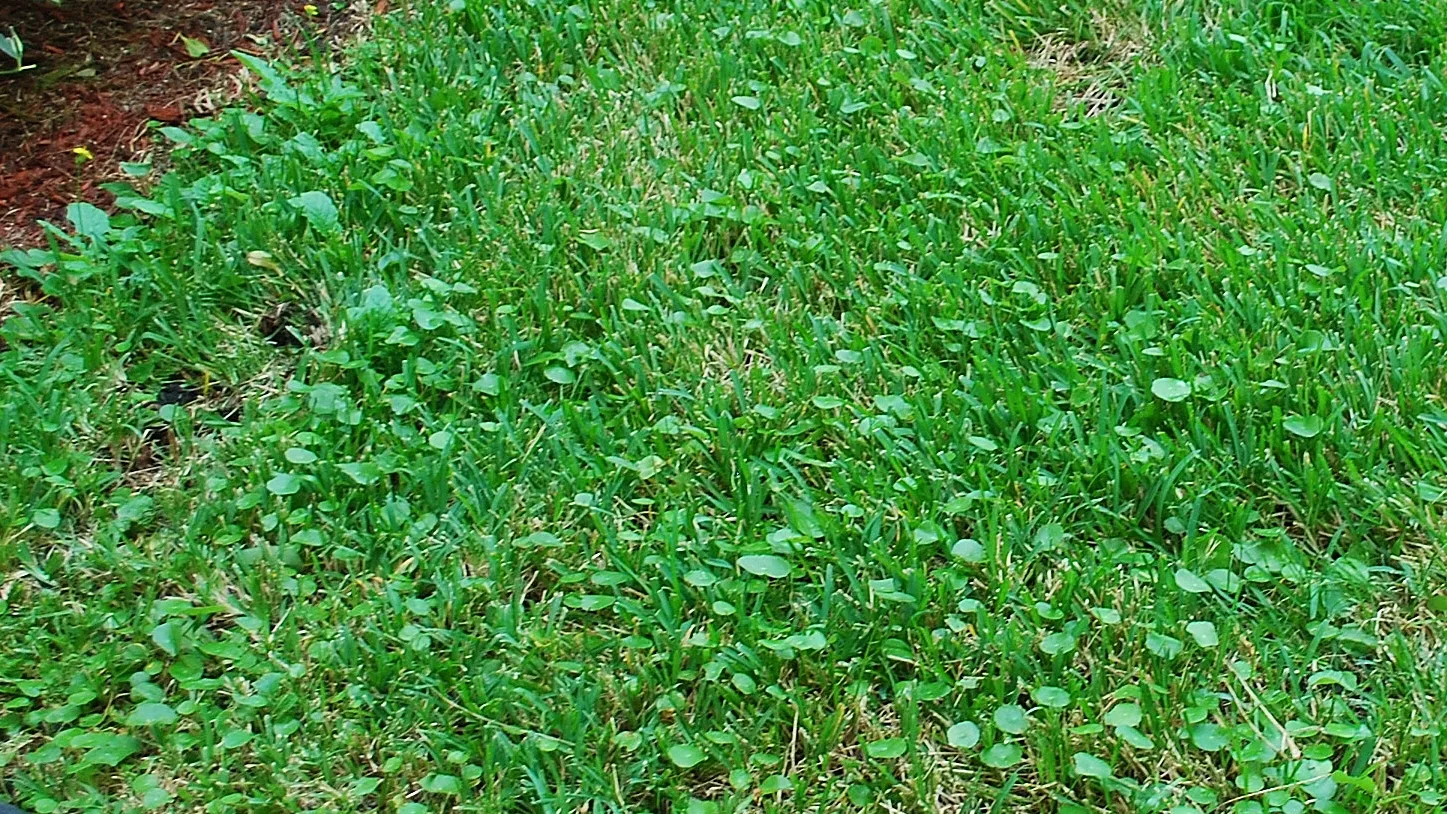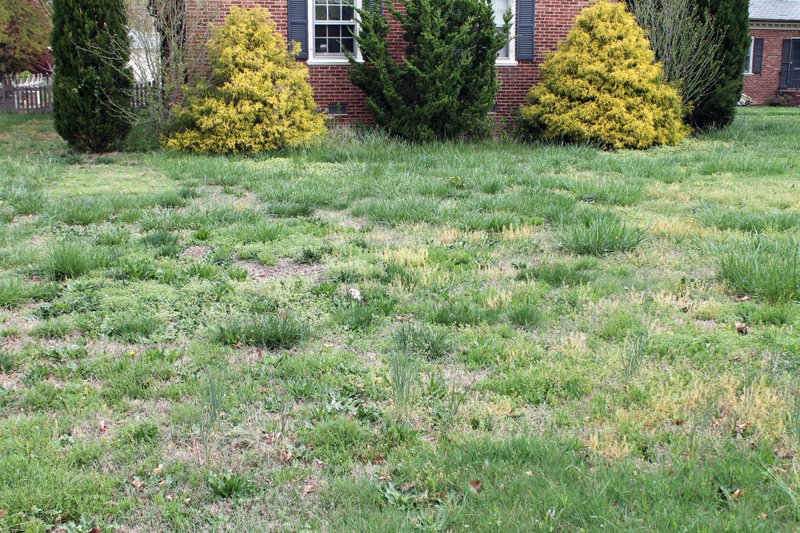Unveiling the Secret to a Weed-Free Garden: Natural Solutions
Gardening enthusiasts and homeowners alike often face the challenge of maintaining a lush, weed-free lawn or garden. The quest for an effective solution that doesn’t harm the grass or the environment has led many to seek out natural, homemade alternatives to commercial weed killers. The beauty of these natural solutions lies in their simplicity, affordability, and safety, making them an ideal choice for those looking to manage their gardens in a more eco-friendly and pet-safe manner.
Understanding the need for a selective homemade weed suppressant that is safe for grass and pets, this guide explores various natural weed control methods that have proven effective over time. From the acidity of vinegar and lemon juice to the scalding power of boiling water, these methods leverage simple household ingredients to target weeds without disrupting the delicate balance of your lawn or garden. Moreover, these natural solutions offer a dual benefit – they not only help in managing unwanted vegetation but also contribute to the health of your garden’s ecosystem.
By embracing organic lawn weed management practices, gardeners can achieve a vibrant, weed-free outdoor space. The key lies in knowing how to apply these natural remedies effectively and understanding the science behind their weed-killing properties. Whether you’re dealing with pesky dandelions, invasive crabgrass, or any other unwanted plants, the natural solutions detailed in this guide promise a safe, effective, and environmentally friendly approach to weed control. So, let’s dive into the world of natural weed management and discover how to keep your garden flourishing without compromising the health of your grass, pets, or the planet.
The Power of Vinegar and Salt Solution
Discovering a natural weed control method that is safe for grass and pet-friendly can be a game-changer for garden enthusiasts and homeowners alike. One such solution lies in the simple yet potent combination of vinegar and salt. This DIY grass-safe herbicide leverages the acidic nature of vinegar and the desiccating properties of salt to create an organic lawn weed management solution that targets unwanted vegetation without harming your grass.
Vinegar, particularly when used in its more concentrated form (like horticultural vinegar), can effectively kill weeds by lowering the pH of the soil temporarily, making it inhospitable for weeds. When combined with salt, which acts to dehydrate the plants and disrupt the internal water balance of weed cells, the mixture becomes a formidable selective homemade weed suppressant. This natural concoction ensures that the roots of the weeds are attacked, ensuring they do not regrow, while being careful not to harm the surrounding grass if applied correctly.
However, the key to success with this natural weed killer lies in its application. It is best used in areas where weeds are isolated or where grass and other desirable plants can be shielded from the spray. Precision in application will ensure that the vinegar and salt solution targets only the weeds, preserving the health and beauty of your lawn. This method stands out as an effective, eco-friendly alternative to chemical herbicides, aligning with the growing trend towards organic gardening and lawn care practices.
By embracing this pet-friendly weed killer recipe, gardeners can enjoy a lush, weed-free lawn while maintaining a safe environment for their pets and family. It’s a testament to the power of natural solutions in achieving a beautiful, healthy garden without compromising on safety and environmental health.

Boiling Water Technique: A Simple Yet Effective Method
The boiling water technique stands out as a remarkably straightforward yet highly effective method for natural weed control that is safe for grass. This method involves pouring boiling water directly onto the weeds you wish to eliminate. The intense heat instantly denatures the plant’s proteins, effectively killing the weed from the leaves down to the roots. What makes this technique especially appealing is its simplicity and the fact that it uses water— a substance with no harmful chemicals, making it a pet-friendly weed killer recipe.
DIY enthusiasts and gardeners looking for a grass-safe herbicide will find the boiling water method particularly useful. It is selective in its application, allowing you to target individual weeds without affecting the surrounding grass or plants. This precision makes it an excellent choice for maintaining the aesthetic and health of your lawn or garden without resorting to chemical herbicides.
Moreover, the boiling water technique is a cornerstone of organic lawn weed management. It aligns with environmentally friendly gardening practices by avoiding the use of toxic substances, thus ensuring the safety of local wildlife and beneficial insects. Additionally, this method is cost-effective, requiring only water and a source of heat, making it an accessible option for gardeners worldwide.
While the boiling water technique is highly effective for small-scale weed control, it’s important to apply it carefully to avoid damaging nearby plants that you wish to keep. The selective nature of this homemade weed suppressant ensures that, when used correctly, it can be a powerful tool in your gardening arsenal for achieving a weed-free garden while preserving the health and beauty of your lawn and garden spaces.
Baking Soda: The Unsung Hero in Weed Control
Baking soda, a common household item, emerges as a surprisingly effective solution for those grappling with unwanted garden weeds. Its mode of action is both simple and ingenious, capitalizing on its high sodium content to create an environment where weeds struggle to survive. When applied directly to the foliage of weeds, baking soda begins to dehydrate the plant, disrupting its internal water balance and leading to its eventual demise. This method is particularly effective for weeds that sprout in the cracks of driveways, patios, and garden paths.
For gardeners seeking a natural weed control method that is safe for grass, baking soda offers a compelling advantage. Its selective nature means that when applied carefully and directly to weeds, without scattering it broadly, it minimizes the risk to nearby grass and desirable plants. This precision makes baking soda an excellent choice for maintaining the delicate balance of your garden’s ecosystem while keeping it free from unwanted plant intruders.
Moreover, baking soda’s utility extends beyond weed control. It can also serve as a pet-friendly weed killer recipe, ensuring the safety of your furry friends while they enjoy the garden. Its non-toxic properties make it a preferred choice for gardeners who prioritize organic lawn weed management and seek to avoid the harsh chemicals found in many commercial herbicides.
Incorporating baking soda into your gardening routine as a DIY grass-safe herbicide is straightforward. A common approach involves moistening the weeds with water and then sprinkling a generous amount of baking soda on the weed’s foliage and base. For optimal results, this method is best applied during dry weather conditions to ensure the baking soda remains on the weeds long enough to exert its weed-suppressing effect.
Embracing baking soda as a selective homemade weed suppressant not only contributes to a weed-free garden but also aligns with environmentally friendly gardening practices. Its efficacy, safety, and ease of use make it an invaluable tool in the natural gardener’s arsenal for achieving a lush, healthy, and weed-free outdoor space.

Soap, Oil, and Vinegar: A Potent Homemade Herbicide
Discovering a natural weed control solution that is safe for grass yet effective against unwanted plants can be a game-changer for garden enthusiasts and homeowners alike. Among the myriad of home remedies, the combination of soap, oil, and vinegar stands out as a potent homemade herbicide. This concoction leverages the natural properties of its ingredients to target weeds without harming the grass or the environment.
The recipe for this pet-friendly weed killer is simple yet powerful. By mixing a gallon of white vinegar, a cup of salt, and a tablespoon of liquid dish soap, you create a solution that can tackle even the most stubborn weeds. The vinegar acts as the primary weed-killing agent due to its acetic acid content, which burns the weed upon contact. The salt further dehydrates the plant, while the soap acts as a surfactant, improving the solution’s adherence to the weed’s surface for enhanced effectiveness.
What makes this DIY grass-safe herbicide appealing is its selectivity and safety. When applied carefully and directly to the weeds, it minimizes the risk to nearby grass and plants. This selective homemade weed suppressant provides an organic lawn weed management solution that is not only effective but also environmentally friendly. It’s a perfect choice for those seeking to maintain their garden’s health naturally, without resorting to harsh chemicals.
However, while this mixture is a powerful tool in your natural weed control arsenal, it’s important to apply it with precision. Direct application to the weeds, avoiding overspray or runoff to the desired plants or grass, is crucial for ensuring the safety and beauty of your garden. With this homemade solution, achieving a weed-free garden while keeping your grass and plants healthy and vibrant becomes an attainable goal.
Lemon Juice: Nature’s Own Weed Killer
Lemon juice, often celebrated for its culinary uses, holds a secret power in the world of gardening as a natural, effective weed killer. This readily available ingredient can be a game-changer for those seeking a pet-friendly weed killer recipe that’s safe for grass and the environment. The citric acid present in lemon juice works by dehydrating the weeds, effectively killing them without the need for harsh chemicals.
For gardeners exploring DIY grass-safe herbicide options, lemon juice offers a simple yet potent solution. Its organic nature aligns with the principles of organic lawn weed management, ensuring that your garden remains a safe haven for pets, children, and wildlife. When applied directly to the leaves of weeds, the acidic content of the lemon juice quickly goes to work, breaking down the cell walls of the unwanted plants.
Creating a selective homemade weed suppressant using lemon juice is straightforward. Simply extract the juice from several lemons and apply it directly to the weeds you wish to eliminate. For an enhanced effect, mix the lemon juice with a small amount of vinegar and soap, which helps the solution adhere to the leaves, increasing its efficacy. This mixture represents a powerful ally in the fight against weeds, offering a natural weed control solution that is safe for grass.
The beauty of using lemon juice as a weed killer lies not only in its effectiveness but also in its environmental friendliness. It embodies the essence of natural gardening practices, providing a safe, sustainable option for maintaining a healthy, vibrant garden. As we continue to seek ways to harmonize our gardening practices with the well-being of our planet, lemon juice stands out as a shining example of nature’s prowess in offering solutions that are both gentle and powerful.

The Science Behind Homemade Weed Killers: How They Work
Understanding the science behind homemade weed killers is crucial for effectively managing weeds without harming your grass. These natural solutions leverage the properties of common household ingredients to target weeds selectively, ensuring your lawn stays lush and healthy. The key to their effectiveness lies in their ability to disrupt the weed’s growth processes without affecting the grass.
Vinegar, a popular ingredient in DIY herbicides, contains acetic acid which works by drawing moisture out of weed leaves, causing them to dry out and die. This method is particularly effective on young, annual weeds. However, it’s the concentration of acetic acid that determines the solution’s potency. Household vinegar typically has a 5% concentration, which can manage young weeds but might be less effective on established ones. For tougher weeds, a higher concentration of vinegar is required, which should be used with caution to avoid harming the grass.
Salt, another common ingredient, acts by dehydrating the plant and disrupting the internal water balance of the weed’s cells. When used in moderation and applied directly to the weeds, it can be an effective weed suppressant without posing a significant risk to the grass. However, excessive use of salt can lead to soil degradation, making it inhospitable for both weeds and grass.
Boiling water and baking soda work through thermal shock and osmotic pressure, respectively. Boiling water instantly kills weed cells on contact, while baking soda increases the salinity of the soil around the weed, making it difficult for the weed to survive. Both methods are selective in their application, ensuring the surrounding grass remains unaffected.
By leveraging the natural properties of these ingredients, homeowners can create effective, grass-safe weed control solutions. Understanding the science behind these methods enables the selective targeting of weeds, preserving the health and beauty of the lawn.
Application Tips for Maximum Efficiency
Applying homemade weed killers effectively is crucial to ensure they target only the weeds without harming your grass or desired plants. Here are some tips to maximize the efficiency of your natural weed control solutions:
1. Apply during dry weather: For best results, apply your homemade weed killer during dry, sunny weather. Moisture can dilute the solution, reducing its potency. Sunlight enhances the effectiveness of acidic solutions like vinegar and lemon juice, helping to desiccate and kill weeds faster.
2. Target weeds directly: Use a spray bottle or a brush to apply the solution directly onto the weeds you want to eliminate. This precision helps protect the surrounding grass and plants from potential damage. For larger areas, consider using a garden sprayer with a narrow nozzle to control the spread.
3. Adjust the concentration as needed: Depending on the resilience of the weeds and the sensitivity of your grass, you may need to adjust the concentration of your homemade weed killer. Start with a weaker solution and gradually increase the strength if necessary, always monitoring the response of both weeds and grass.
4. Reapply if necessary: Some stubborn weeds may require multiple applications to be fully eradicated. Wait for a few days to observe the effect of the initial application, and reapply if the weeds show signs of recovery. However, be cautious not to overapply, as this could harm the soil’s health.
5. Use in combination with other methods: For comprehensive weed control, consider combining your homemade solutions with physical weed removal techniques, such as pulling or hoeing. This integrated approach can help manage weeds more effectively while keeping your lawn and garden healthy.
By following these application tips, you can enhance the effectiveness of your natural weed control methods, ensuring a healthier, weed-free garden without compromising the safety of your grass and other desirable plants.
Safety Measures and Environmental Considerations
When embarking on the journey of natural weed control, it’s crucial to prioritize safety measures and environmental considerations. The allure of homemade solutions lies not only in their effectiveness but also in their potential to minimize harm to our planet and its inhabitants. However, even natural ingredients can pose risks if not handled or applied correctly. For instance, vinegar, while a powerful natural herbicide, can lower the soil’s pH, making it inhospitable for some plants. It’s essential to apply it carefully, targeting only the weeds you wish to eliminate.
Moreover, the safety of pets and wildlife should be at the forefront of our minds. Ingredients like salt, when used excessively, can leach into the soil and affect the broader ecosystem. Opting for pet-friendly weed killer recipes ensures that our furry friends and local fauna remain unharmed. It’s also advisable to choose times for application when beneficial insects are less active, typically during early morning or late evening, to avoid unintended harm.
Another critical aspect is the selective nature of the weed control method. DIY grass-safe herbicides are designed to target weeds without damaging the grass or other desired plants. This selectivity not only preserves the health of your lawn but also contributes to the overall ecosystem by maintaining biodiversity. Organic lawn weed management practices encourage a balanced environment, promoting soil health and reducing the need for chemical interventions.
In conclusion, while natural weed control methods offer a safer alternative to chemical herbicides, they require mindful application and consideration of their environmental impact. By adhering to safety measures and prioritizing ecological health, gardeners can effectively manage weeds while safeguarding the environment, their pets, and the community.
Beyond Weeds: Enhancing Your Garden’s Health Naturally
While eliminating weeds is a crucial step in maintaining a healthy garden, it’s equally important to focus on enhancing the overall health of your garden naturally. A thriving garden is not just about what you remove, but also about what you nurture. Organic lawn weed management goes beyond mere weed control; it involves creating an environment where your plants can flourish.
One effective strategy is to improve soil health. Incorporating organic matter, such as compost or well-rotted manure, can significantly boost soil fertility and structure. This not only aids in plant growth but also improves water retention, reducing the need for frequent watering. Additionally, healthy soil supports a vibrant ecosystem of beneficial microorganisms that can help suppress harmful pests and diseases.
Another aspect of natural garden enhancement is the use of mulch. Mulching not only suppresses weeds but also helps retain soil moisture, regulate soil temperature, and add organic matter to the soil as it decomposes. Opt for natural mulch materials like straw, bark, or leaf mold to add an extra layer of protection and nourishment to your garden beds.
Companion planting is also a powerful technique in organic lawn weed management. By planting certain plants together, you can deter pests, attract beneficial insects, and even enhance the growth and flavor of your garden produce. For instance, marigolds are known to repel nematodes and other pests, while basil can improve the health and taste of tomatoes.
Finally, regular monitoring and maintenance are key to a healthy garden. By staying vigilant and addressing issues promptly, you can prevent minor problems from escalating. Remember, a selective homemade weed suppressant is just one tool in your gardening arsenal. Embrace a holistic approach to garden care, focusing on building a resilient, vibrant ecosystem that supports all forms of life.
